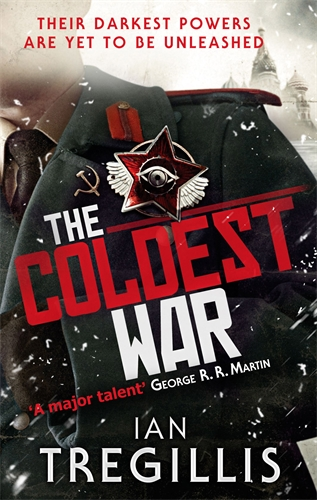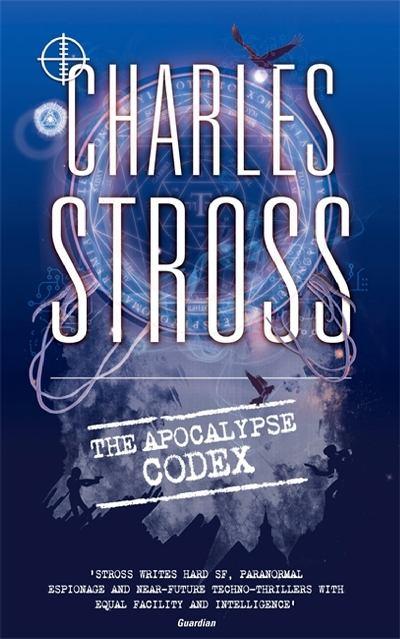Ian Tregillis in conversation with Charlie Stross on The Laundry Files
 This week sees the release of THE COLDEST WAR (UK | ANZ) , the second novel in Ian Tregillis’s landmark series, the Milkweed Triptych. The trilogy began with BITTER SEEDS (UK | ANZ) and concludes with the forthcoming NECESSARY EVIL (UK | ANZ).
This week sees the release of THE COLDEST WAR (UK | ANZ) , the second novel in Ian Tregillis’s landmark series, the Milkweed Triptych. The trilogy began with BITTER SEEDS (UK | ANZ) and concludes with the forthcoming NECESSARY EVIL (UK | ANZ).
These novels feature a secret history of Twentieth Century conflicts in which scientifically-enhanced superhumans and dark magic collide. The result is described by Fantasy Faction as ‘oh-so compelling, fascinating and frighteningly convincing’ and by Cory Doctorow as, ‘some of the best – and most exciting – alternate history I’ve read. Bravo.’
 It’s possible to draw a few parallels between the themes in the Milkweed novels and Charles Stross’s highly popular Laundry Files (including the recent THE APOCALYPSE CODEX – UK | ANZ) – a series of science fiction spy thrillers featuring Bob Howard, once an IT geek, now a field agent working for a British government agency dealing with occult threats. They’re what SFX calls ‘beautifully handled, believable and well envisioned – a highly enjoyable bit of spy-fi.’
It’s possible to draw a few parallels between the themes in the Milkweed novels and Charles Stross’s highly popular Laundry Files (including the recent THE APOCALYPSE CODEX – UK | ANZ) – a series of science fiction spy thrillers featuring Bob Howard, once an IT geek, now a field agent working for a British government agency dealing with occult threats. They’re what SFX calls ‘beautifully handled, believable and well envisioned – a highly enjoyable bit of spy-fi.’
For that reason we were really interested to hear these two exceptionally clever Orbit authors in conversation about their series. The results are below!
Ian: In an afterword to THE ATROCITY ARCHIVES (“Inside the Fear Factory”) you mention that while writing the first Laundry novel you were advised to avoid Tim Powers’s novel DECLARE. And that later you were made aware of the Delta Green supplement to The Call of Cthulhu RPG, which again resides in a similar neighborhood.
(After BITTER SEEDS debuted, people assumed I had been influenced by DECLARE, Delta Green, *and* the Laundry novels! But, like you with DECLARE, I wanted to avoid cross-contamination. So I didn’t dive into THE ATROCITY ARCHIVES until after I turned in THE COLDEST WAR, at which point I was 2/3 through the Milkweed trilogy and the story was on a ballistic trajectory.)
But of course even Powers wasn’t the first to marry espionage and the occult – Dennis Wheatley’s novel THEY USED DARK FORCES first appeared in 1964, and Katherine Kurtz‘s LAMMAS NIGHT was published in 1983, as just two examples.
In the above-mentioned afterword, you make a strong case for why it’s natural to blend horror, the occult, and espionage. So is this an idea that’s continually bubbling into the aether to be rediscovered by other writers? Or have we reached the point where we’re having a conversation within an actual subgenre?
Charlie: It is indeed an actual subgenre! Or maybe a sub-subgenre: a corner of that section of urban fantasy that is preoccupied with the interaction between agents of the state and the occult. (more…)
